On a Friday night in December, as pandemic anxieties, craven politicians denying stimulus money for citizens in need, and last-minute holiday shopping took up most people’s bandwidths, Twitter was briefly captivated by carp.
Like most memes born on post-Obama era Twitter, #tweetcarp was an ephemeral fever dream. Gizmodo had an article up the following afternoon waxing on its rise from an anonymous Tweet promoted as a joke to thousands of people engaging with a contextless image of a fish dumbfounded in the hands of its captor. That following Monday, #tweetcarp had already reached its shelf life on most timelines when Greg Katz and Mandy Tannen alluded to the phenomenon in relation to their Poster Brain-adjacent lyricism as Cheekface.
“Mandy’s previously described Cheekface’s lyrics as curated thoughts and, in a way, I guess if you’re making Twitter posts, you’re curating your thoughts,” Katz reflects over a Zoom call. “Today, I’m angry that the government doesn’t care enough about the people who are suffering the most, but today, I also think this invasive fish species is funny… those contrasting thoughts live together in your mind and for us too, but I don’t think those things are opposites.”
—
Rounded out by drummer Mark Echo Edwards, Cheekface emerged in the first days of 2018 fully certain of how to speak to a cerebral shitposter’s headspace. Their first single, “Glendale,” is three minutes of buzzy, languid post-punk as Katz lists places in the southern Californian capital of malls that are in retrograde before taking a nap in public. They followed it with “Dry Heat/Nice Town,” the band’s quasi-theme song that imagines a utopia where American imperialism is defeated through protest as LA’s notoriously expensive juice bars begin doling out free products.
Their initial singles landed like some joyous combination of Courtney Barnett, Cake, and an adult version of Gene from BOB’S BURGERS that’s more medicated, but still found room to interject a chorus with non sequitur keyboard sounds of dogs barking. Each following single (which have each been released faithfully within 90 days of the last) only further expanded on the Cheekface platform for a better world, complete with sexy national anthems, absurdist one-liners intersecting with earnest self-reflection, and sifting sing-alongs out of societal suffering.
“When I met Greg, I was looking for something pretty particular,” Tannen recalls. “I was really sick of being in a band that was hard and a lot of drama. I was also coming out of a band that was my career. It was a band that paid my rent, did all that, but I didn’t want that anymore. I wanted something that was creatively fulfilling, that I could be fully myself in and not have to put a presentable package together.”
“I think the benefit of being an indie rock lifer is that you try a bunch of things and you find out what works, what you enjoy doing, and the aspects of doing it that you feel are true to you,” Katz adds. “Once it was like ‘There’s gonna be a lot of talking, the chords aren’t gonna change very much, and they’re not going to be very sophisticated,’ that part of the discovery process was validated; now let’s run with it and explore.”
The exploratory phase culminated with 2019’s THERAPY ISLAND, a rare kind of debut album that has the unyielding energy of a greatest hits compilation, but makes sense given half the record pulls from their one-off singles. Even with all that familiarity, each song contorts within Cheekface’s edict of simplicity like a compulsive balloon artist trying to find new shapes. The one-two punch of “Dry Heat” and “I Only Say I’m Sorry When I’m Wrong Now” acts as an informational pamphlet into whether the church of Cheekface is right for you: both lead off with Katz’s smirking talk-singing on self-improvement and dismantling capitalism before delivering two of the sunniest choruses in the band’s arsenal. While they sound most at home fitting novels of thought into minute-long sprints (namely on “Eternity Leave” and “Big Blank Distraction”), both Tannen and Katz point to “House Shoes,” a two-chord, three-word song where two of the words are in the title, as Cheekface at its most essential. If anything, the ever-growing cult of “Cheek Freaks” in the wake of THERAPY ISLAND is a testament to its earworming singularity, especially considering Katz’s well-documented standards for the band that include declarations like “Don’t do premieres” and, simply, “Reverb is bad.”
“You have to stand for something or you’ll fall for anything,” Katz answers with a laugh when reading back some of his rules posted on Twitter and in interviews.
“I think Greg has some ‘Nos’ that I’m like, ‘What?!,” Tannen admits. “But y’know, I think working with less and less can create more and more.”
“One of the things that we’re reaching for throughout this project is do something bold and clear and don’t try to disguise what that is,” he adds. “Probably everyone we’ve ever worked with has sent us back a first pass where there’s distortion and reverb and slap echo on the vocals because that’s what a cool indie band sounds like and how you signify cool indie-ness to a listener. Yes, we appreciate that you think we’re a cool indie band and that’s how people should process it, but it can’t be at the expense of what the project is, which is largely the words.”
—
Aside from headlining a few shows outside of Los Angeles, Cheekface followed up THERAPY ISLAND by changing very little about their routine. A few months after its release, the band posted up the punctuation-heavy “‘Listen To Your Heart.’ ‘No.’” followed by another string of bimonthly singles through 2019 and 2020. Abnormal efficiency aside, each single managed to refine Cheekface’s sound without sacrificing their cerebral likability, as evidenced by titles like “‘Listen To Your Heart.’ ‘No.’ and “Emotional Rent Control.” It’s most clearly heard laid out across EMPHATICALLY NO., the band’s second album that, aside from a few cryptic hints on socials, comes out today somewhat as a surprise release.
“The ritual of an album rollout is not cool or fun as far as I’m concerned, so our rule has always been: if it’s not fun, we’re not gonna do it,” says Katz. “Putting out the record is fun, but going through a painstaking process of ‘We’re gonna drop this content here, we’re gonna drop that content here, and it’s all gonna lead up to the big day’… no! So corny!”
Where part of the joy in THERAPY ISLAND was its grab-bag nature, NO. delivers on the same caffeinated lyrical leapfrogging while delivering a sleeker, more linear sonic statement. That’s in part due to the band containing the recording to a handful of sessions at Elliott Smith’s former space, New Monkey Studio in Van Nuys, and one session at Studio G in Greenpoint that inadvertently became the last for the record back in February.
“We were prepared to record three songs [at Studio G], which we did right before the pandemic hit,” says Tannen. “With the first album, we actually went in a couple different stints to record songs as we wrote them because we were like, ‘This one’s awesome, we wanna release it!’ This time, we didn’t have that luxury.”
NO. thankfully doesn’t suffer on a truncated timeline; if anything, it’s an eerily prescient dispatch of a band trying to maintain sanity amidst total political and social fallout. Album highlight “Best Life” offers embroidery-worthy affirmations (“Your best life is the one that you’re living right now,” “Smiling’s contagious, but you know, so is yawning”) while Katz copes with life by furiously Juuling on coffee shop patios. Elsewhere, the band petitions loved ones to join the resistance (the fittingly titled “Call Your Mom”), files a Prudential Insurance claim for when “our insides are empty” (“Emotional Rent Control”), and compares an idle existence to a needlessly long CVS receipt (“Wedding Guests”). It’s apt that NO. coincides with the first days of a new year where most people are fiending for a shred of positivity, even if Katz maintains that Cheekface is not recommended as a serotonin booster.
“I think it’s funny that people perceive the project as positive when it comes from a place of extreme darkness and despair,” Katz adds. “I just think that when we approached it, we didn’t want to approach it as bludgeoningly sad or dark or negative. We didn’t want to make the world darker with the records, even though the records are about the darkness.”
—
With only two outside collaborators on the album (LA session musician Brijesh Pandya and ex-Speedy Ortiz guitarist Devin Maneka shredding on “Wedding Guests” and “Call Your Mom” respectively) and one storied debate over whether a mariachi band would work on “(I Don’t Want To Go To) Calabasas” (spoiler: it didn’t, that part got cut), EMPHATICALLY NO. keeps moving faithfully forward on Cheekface’s quest for directness while Katz and Tannen’s lyricism get stranger and more relatable across each song. Cheekface’s biggest triumph as of late, though, might be emerging as a relatable voice for a pandemic-weathered Los Angeles scene in the past year. In April, one of the last marquees that beloved Silver Lake venue The Satellite posted was a Cheekface lyric. The venue has since closed permanently to be rebranded as a bar/restaurant.
With the obvious dream of playing for growing Cheek Freak crowds stuck as just that right now, the band is nevertheless resolute on how they plan to celebrate NO. in Los Angeles once it’s deemed safe to (hopefully) in the near future.
“If the talent buyers and bartenders and sound people and ticket booth workers that we love are working at a VFW or a cultural center putting on shows because all of the mom and pop venues have been converted into Sweetgreens and Chipotles, I’m looking forward to playing at cultural centers and VFWs,” affirms Katz.
“No stage, just, like, boom, people tripping over my mic stand,” adds Tannen.
“For a band like us that’s kind of a free-range band, we like playing in free-range places,” Katz concludes. “We like playing in a half-empty bowling alley bar for free on a Tuesday night.”
You can check out Cheekface’s latest, EMPHATICALLY, NO., out now, over on Bandcamp!



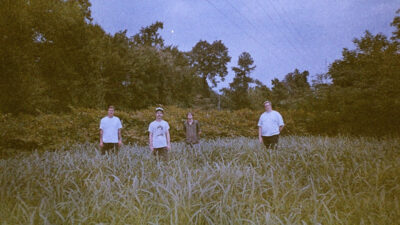
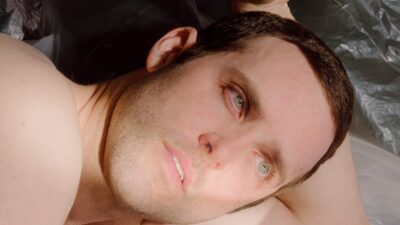

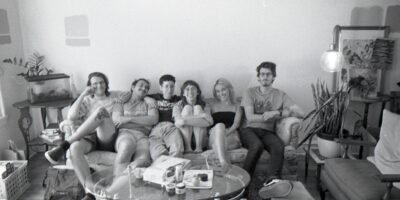
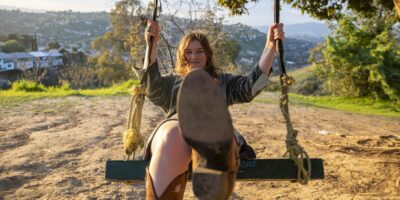
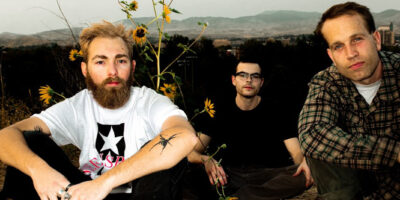
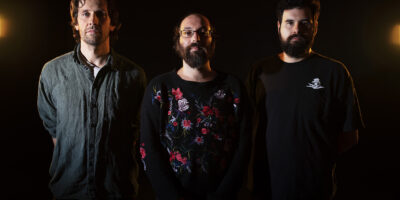

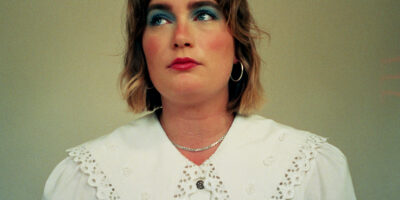

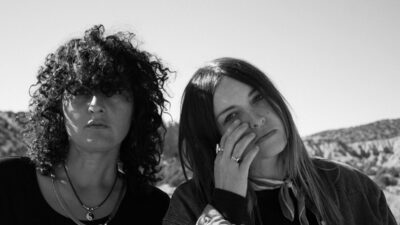


Comments